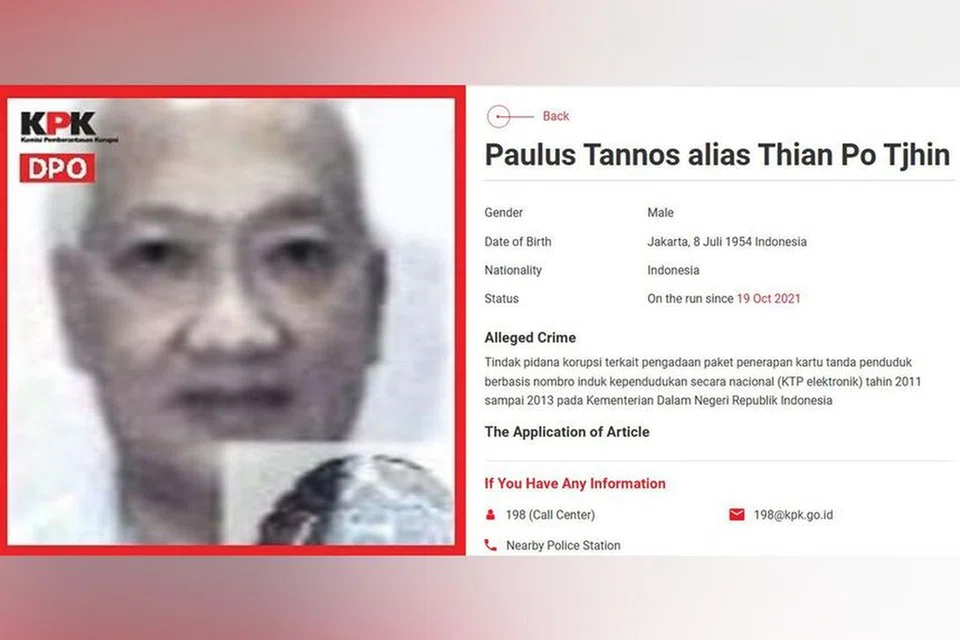Indonesian fugitive businessman facing extradition from Singapore applies for bail
Paulus Tannos was arrested here on Jan 17 after being implicated in a major graft scandal involving the Indonesian government’s electronic ID card or e-KTP project.PHOTO: SCREENGRAB FROM KPK.GO.ID
Samuel Devaraj
Mar 13, 2025
SINGAPORE – An Indonesian businessman, who was allegedly involved in a corruption case in Indonesia and is in remand in Singapore, has applied for bail while facing extradition proceedings.
At a hearing at the State Courts on March 13, Deputy Senior State Counsel Sarah Siaw said documents for the bail application for Paulus Tannos, who is in his 60s, were submitted on March 11.
Tannos, who is also known as
Tjhin Thian Po, was arrested here on Jan 17 after being implicated in a major graft scandal involving the Indonesian government’s electronic ID card or e-KTP project.
It allegedly caused state losses of about 2.3 trillion rupiah (S$186 million).
On March 10, Singapore’s Ministry of Law said Indonesia put in a formal extradition request on Feb 24.
Ms Siaw said that enclosed in the documents submitted by Tannos’ lawyer, Mr Bachoo Mohan Singh, were various assertions that required the prison authorities’ input.
She said prison officers would need between four and five weeks to produce a detailed medical report and that a reply affidavit to the defence’s submissions could only be submitted by April 17.
corporations and affiliates as well as their agents and authorised service providers.
marketing and promotions.
She noted that the defence had submitted the documents past the timeline issued by the court.
On the delayed response, Mr Singh said he went to see Tannos on March 6 to take instructions and to finalise the affidavit he was submitting.
But he was told his client had been taken to Changi General Hospital as he had complained of chest pains.
Mr Singh added that he did not get any information on his client’s condition for between 24 and 48 hours.
He said he was applying for bail for his client, and if bail were refused, he would then apply for him to be kept in a hospital.
Mr Singh added that there was no denying that Tannos has medical issues.
The case was adjourned to March 19, with the prosecution to give the court an update on the timeline of their replies.
Speaking in Bahasa Indonesia, Tannos told the court on March 13 that he was not consenting to be extradited to Indonesia.
Changes were made to the Extradition Act in April 2022 to allow fugitives to consent to their extradition.
On March 10,
at a press conference on the matter, Law and Home Affairs Minister K. Shanmugam noted Tannos’ entitlement to make a bail application.
Mr Shanmugam said that while extradition hearings vary from case to case, the legal process can take two years or maybe even longer if it is complicated and contested at every step of the way.
Tannos was the president and director of Shandipala Arthaputra, a technology company awarded a contract to produce part of the e-ID cards.
He has reportedly been on Indonesia’s fugitive list since Oct 19, 2021, and is believed to have been living in Singapore since 2017.
The extradition treaty between Singapore and Indonesia took effect on March 21, 2024.
It grants extradition for a list of offences, including corruption, money laundering and bribery, and can be retrospectively applied to crimes committed up to 18 years ago.

